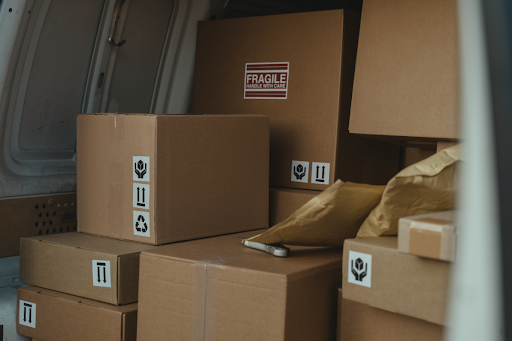
The e-commerce boom has delivered many benefits to consumers, including more convenience, accessibility, and cost efficiency. However, when it comes to sustainability, the boom has brought new challenges. The increase in deliveries has led to more packaging waste and more carbon emissions, both of which have the potential to negatively impact the environment.
Senpex Technology, a leading personalized logistics and delivery service, is taking steps to address those challenges. Senpex serves consumers and companies across the US and Canada with a wide array of delivery solutions, including last-mile logistics, commercial moving services, and a cutting-edge API that streamlines the e-commerce process. By leveraging advanced technology and embracing emerging sustainability practices, Senpex is revolutionizing last-mile logistics and driving the industry toward greener deliveries.
Decreasing emissions with optimized routing
Increasing the efficiency of delivery routes benefits everyone involved in the e-commerce equation. Consumers get products faster, delivery providers save fuel, and fewer carbon emissions are released into the environment.
Senpex has adopted several practices that improve efficiency, most notably its advanced route optimization. By leveraging artificial intelligence’s data analytics capabilities and integrating them into their delivery operations, Senpex ensures that its delivery teams utilize the most efficient route.
“A wide variety of factors can impact the efficiency of delivery routes,” explains Anar Mammadov, CEO of Senpex. “Weather changes can slow traffic on certain roads, traffic accidents can make roads impassable, and school zones can affect traffic patterns at certain times of day. AI-powered route optimization takes all of those factors into consideration when routing deliveries, rerouting as often as necessary as conditions change.”
Senpex’s dynamic routing system manages multi-route deliveries as efficiently as single stops. Whether its clients need orders moved from a single pick-up location to various destinations or from various pick-ups to a single destination, Senpex provides the power to optimize routing and minimize environmental impact.
Senpex also provides services to assist other delivery companies in improving their sustainability efforts. Through its in-house logistics transportation management system, Senpex empowers any company’s logistics team to implement innovations that support greater sustainability.
This tool not only provides route planning and optimization but also improves the visibility of a company’s overall delivery performance, all of which empower greater efficiency and less waste. Furthermore, Senpex’s transportation management system scales with a company’s needs so that sustainability can be attainable regardless of how volume deliveries fluctuate.
Decreasing emissions with autonomous vehicles
Autonomous vehicles are an emerging technology that promises to make last-mile logistics more eco-friendly. Because they are smaller than traditional delivery vehicles, autonomous vehicles can avoid congested traffic areas by accessing bike lanes, sidewalks, and other pedestrian areas. Additionally, because autonomous vehicles are also typically electric vehicles, they can provide companies and consumers with a zero-emissions delivery option.
Through its business partnerships, Senpex empowers companies that are developing autonomous vehicles to integrate cutting-edge delivery technology into their designs. Senpex also works to give companies greater access to autonomous vehicles through its Delivery-as-a-Service (DaaS) and Software-as-a-Service (SaaS) platforms.
“By improving efficiency in last-mile delivery, route optimization and autonomous vehicles have a ripple effect on the sustainability movement at large,” Mammadov says. “As they reduce the amount of congestion caused by delivery vehicles, they also reduce the time other vehicles spend on the road, contributing to a reduction in carbon emissions.”
Decreasing waste with circular practices
Senpex has also embraced the circular economy as a way of increasing sustainability. The circular economy seeks to reduce waste by encouraging the reuse of existing materials. Studies have suggested that shifting to circular practices could reduce greenhouse gas emissions by 39 percent globally.
Catering deliveries are one key area where Senpex encourages circular practices. Its services seek to reduce waste by utilizing packaging that can be returned to vendors and used for future deliveries. Senpex also provides its catering customers with dedicated teams who are familiar with their sustainability goals and can support them consistently. Its route optimization framework ensures that food is delivered on time every time, further decreasing the waste that results from mishandled catering deliveries.
Consumer demand for eco-friendly delivery options is on the rise. Recent studies show that 60 percent of consumers are interested in delivery services that are “fully carbon neutral,” and nearly 80 percent of online shoppers say that they would be willing to wait at least one extra day for delivery if the delay supported increased sustainability.
To stay competitive in a market where sustainability is a growing concern, businesses need options that address environmental concerns. Senpex provides those options, giving companies a valuable tool for meeting their sustainability goals.
